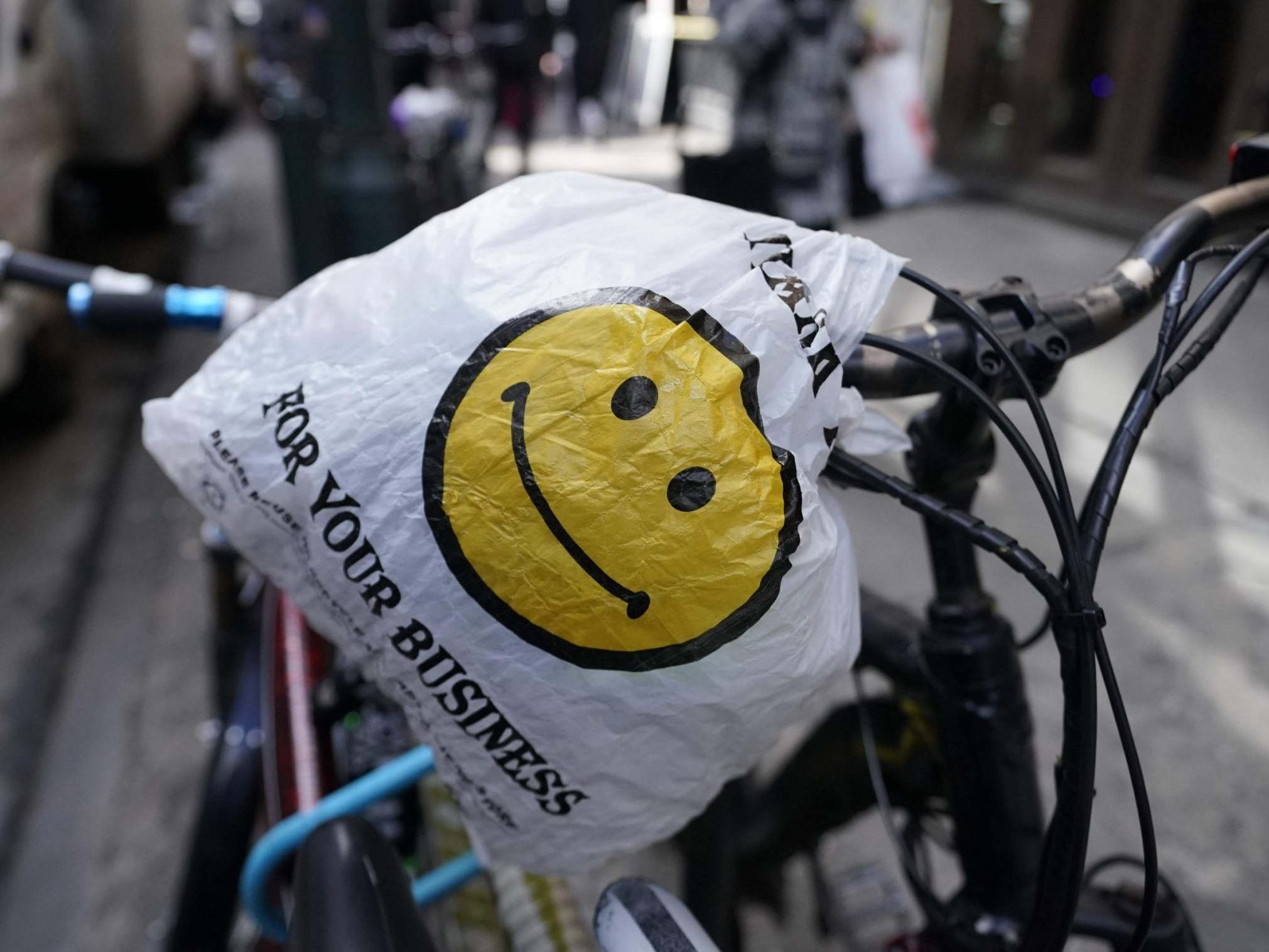This website uses cookies so that we can provide you with the best user experience possible. Cookie information is stored in your browser and performs functions such as recognising you when you return to our website and helping our team to understand which sections of the website you find most interesting and useful.

New Hampshire has banned the use of reusable shopping bags in a bid to stop the spread of the novel coronavirus.
Governor Chris Sununu issued the emergency order on Saturday to temporarily revert to single-use plastic or paper bags in grocery stores, supermarkets, convenience stores and other retail businesses to protect customers and workers.
“Our grocery store workers are on the front lines of #COVID19, working around the clock to keep NH families fed. With identified community transmission, it is important that shoppers keep their reusable bags at home given the potential risk to baggers, grocers and customers," Mr Sununu said in a statement.
The Covid-19 pandemic is raging across America. As of Wednesday, there were 53,852 confirmed cases and at least 728 deaths, according to the New York Times.
In New Hampshire, 108 coronavirus cases were confirmed but no deaths. The first case was identified in the state on 2 March. The patient had recently come back to the US from Italy, NHPR reported.
In recent years, states have moved to ban single-use plastic bags. In New York, a ban came into play on 1 March. Basil Seggos advised New Yorkers concerned about the cleanliness of reusable bags to wash them.
Maine has halted its plastic bag ban due to the coronavirus.
California, Oregon, Connecticut, Delaware, Vermont and Hawaii also have bans against single-use plastic bags in place.
Single-use plastic bags are a major contributor to plastic pollution which add to landfills and choke the oceans. It takes at least 500 years for a plastic bag to break down into micro plastics which find their way into the food chain. At least 267 different species have found to be affected by plastic pollution in the oceans, biologicaldiversity.org noted.
What are the risks of the virus living on a reusable bag?
A new study from the National Institutes of Health found the virus can live on stainless steel surfaces for up to three days.
Vincent Munster, who was part of the NIH study, said that it was unclear how long the Covid-19 virus can live on clothing and surfaces that are harder to clean.
“We speculate due to the porous material, it desiccates rapidly and might be stuck to the fibres,” he told the BBC, emphasising the important of cleaning and thorough hand washing.



 Africana55 Radio
Africana55 Radio 

